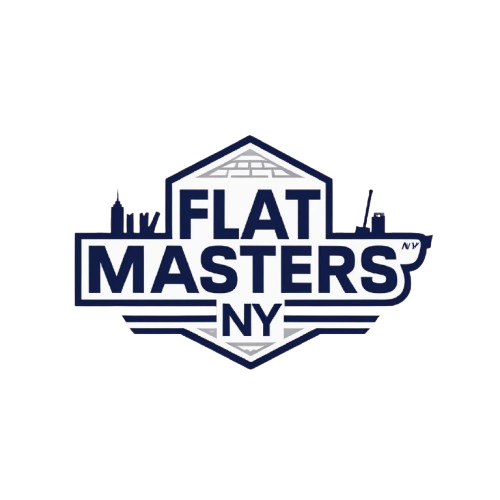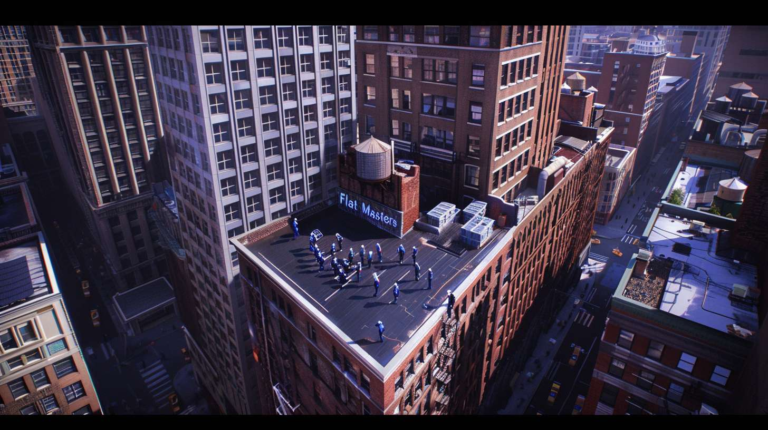Expert Flat Roof Extension Leaking Repair Solutions
Look, if you've got water dripping into your Queens home from a flat roof extension, you're dealing with one of the most frustrating roofing problems out there. Flat roof extension leaking typically runs $800-$3,500 to fix properly, depending on whether it's a simple membrane patch or a complete tear-off situation. I've been fixing these issues across Queens for over two decades, and trust me - extension leaks are a different beast than your main roof problems.
Here's what makes extension-specific flat roof leaks so tricky: these areas take a beating from multiple directions. Your main roof has consistent drainage patterns, but extensions? They're like architectural afterthoughts that collect water, debris, and problems.
Why Flat Roof Extensions Leak More Than Your Main Roof
Extensions are problem magnets. The connection point between your original roof and the extension - we call that the tie-in area - is where most leaks start. I can't tell you how many times I've climbed up on a roof in Astoria or Forest Hills and found the flashing around these connections completely shot. The original contractor probably did a decent job on the main roof, but when they added the extension three years later? Different crew, different standards, corners cut to save money.
Water pools differently on extensions too. Your main roof was designed with proper slopes and drainage in mind, but extensions often have weird angles that create ponds after every storm. Last month on 31st Street, I found an extension that had been holding six inches of standing water for who knows how long. The membrane was basically dissolving.
And the materials? Extensions often use whatever was cheapest at the time they were built. I've seen extensions with three different roofing systems - EPDM rubber on the main area, modified bitumen at the connection, and some kind of liquid coating around the edges. It's like a roofing science experiment, and it never ends well.
Common Extension Leak Locations
Extension-specific flat roof leaks happen in predictable spots:
- Tie-in flashing failures - where the extension meets the main structure
- Corner pooling areas - water sits and finds weak spots
- Parapet wall connections - especially on the low side of the extension
- HVAC penetrations - because extensions always seem to have extra equipment
- Drainage transitions - where water moves from extension to main roof
The flashing issues drive me crazy because they're so preventable. A proper tie-in requires step flashing, counter flashing, and a membrane that transitions smoothly between surfaces. Instead, I find duct tape, roofing cement, and prayers.
Repair Cost Breakdown for Extension Leaks
Extension leak repairs aren't cheap, but they're way less expensive than ignoring the problem. Here's what you're looking at:
Minor membrane patches: $275-$650 per area
Flashing replacement: $45-$85 per linear foot
Corner drain improvements: $400-$900
Parapet wall repairs: $850-$1,800
Complete extension re-roofing: $12-$18 per square foot
Look, I always tell my Queens customers - if you're spending more than $2,000 patching the same extension repeatedly, it's time for a complete redo. I've got customers in Elmhurst who spent $4,000 over three years on patches before finally doing it right for $6,500.
The Queens Weather Factor
Our weather beats the hell out of flat roof extensions. The freeze-thaw cycles split membranes, summer heat bubbles them up, and those nor'easters dump water faster than any drainage system can handle. Extensions with eastern exposures get the worst of it - direct sun all morning, then afternoon storms that push water into every crack.
I've noticed extensions built in the 1990s are hitting their failure point right now. The materials they used back then weren't bad, but they weren't designed for the temperature swings we get here. Plus, a lot of those installations happened during the construction boom when everyone was rushing to get jobs done.
Emergency vs. Planned Repairs
Emergency repairs for flat roof extension leaking cost about 40% more than planned fixes because we're working around weather and water damage. If you're calling me at 9 PM because water's pouring into your kitchen from the extension above, I'm coming out, but it's going to cost extra.
Smart customers schedule extension inspections in April and September. Catch problems before they become emergencies. A $400 inspection might save you $3,000 in emergency repairs when the next big storm hits.
What Makes Extensions Different
Extensions challenge every assumption about flat roof design. They're usually smaller areas, so contractors think they're simpler - wrong. They often have weird shapes that don't follow standard drainage patterns. They connect to existing systems in ways that weren't planned originally. And they're often built by different crews than the original roof, so the materials and methods don't always play nice together.
The biggest problem I see? Extensions that were designed as temporary additions but became permanent without proper weatherproofing upgrades. Someone built a mudroom addition with basic roofing, thinking they'd upgrade it later. Twenty years later, I'm up there fixing the same connection points over and over.
Drainage Solutions for Problem Extensions
Most extension leak problems come down to water management. Extensions often drain toward the main roof, which sounds logical but creates flow problems. Water hits the main roof faster than it can handle, backs up, and finds its way under membranes.
The fix usually involves adding dedicated drainage for the extension. Internal drains, scuppers, or even small gutters - whatever it takes to get water off the extension before it becomes someone else's problem. This runs $600-$1,400 depending on the solution, but it's the difference between annual repairs and decades of trouble-free roofing.
Material Compatibility Issues
Here's something most homeowners don't realize - not all roofing materials work well together. I see extensions where someone tried to connect EPDM rubber to a built-up tar roof using hardware store caulk. Or TPO membrane stuck to asphalt shingles with roofing cement. These connections fail within two years, guaranteed.
Proper material transitions require compatible adhesives, appropriate overlap zones, and often transition strips that cost more than the basic materials but last decades instead of seasons. It's like mixing different brands of paint - sometimes it works, usually it doesn't, and you won't know until it fails.
When to Call Flat Masters NY
Don't wait until you've got buckets in your living room. Flat roof extension leaking gets worse fast because extensions have less structural support than main roofs. Water damage spreads quickly in these areas.
Call us at (917) 994-7618 if you notice water stains on ceilings near extensions, musty odors after storms, or visible membrane damage on your extension roof. We've fixed thousands of extension leaks across Queens, and we know exactly what to look for.
I've been doing this work since the Clinton administration, and extensions still surprise me sometimes. But the solutions are usually straightforward once you understand what's really going wrong. Don't let a contractor talk you into replacing your whole roof when the problem is just the extension connection - that's an expensive mistake I see too often in this business.
Remember, a properly repaired extension should give you 15-20 years of trouble-free service. If someone's telling you it's only going to last five years, find another contractor. Quality work costs more upfront but saves thousands over time, especially here in Queens where the weather tests every roof decision we make.


